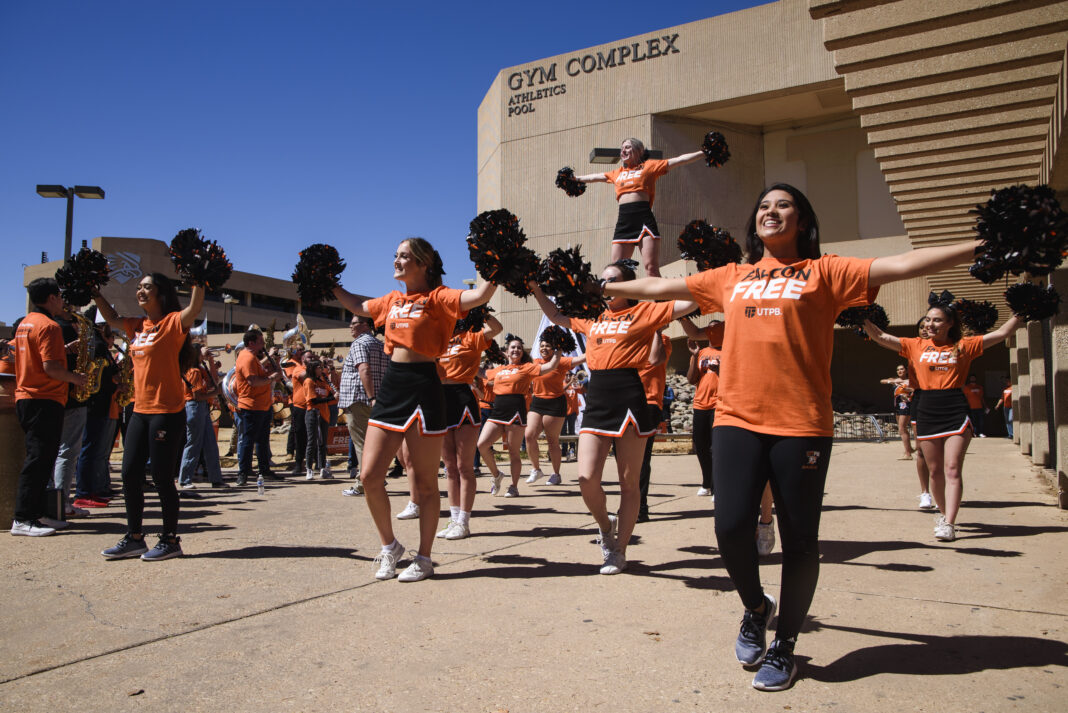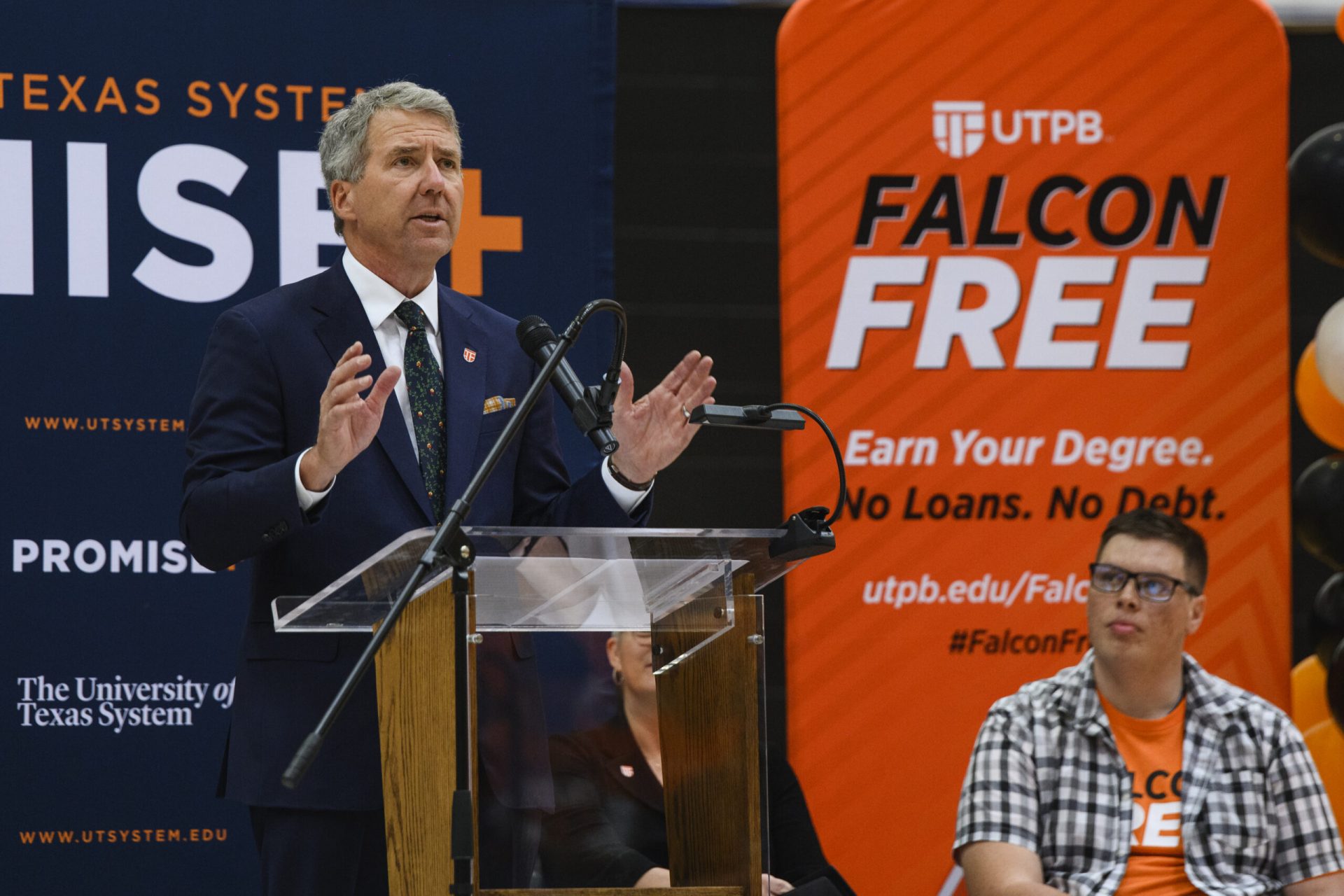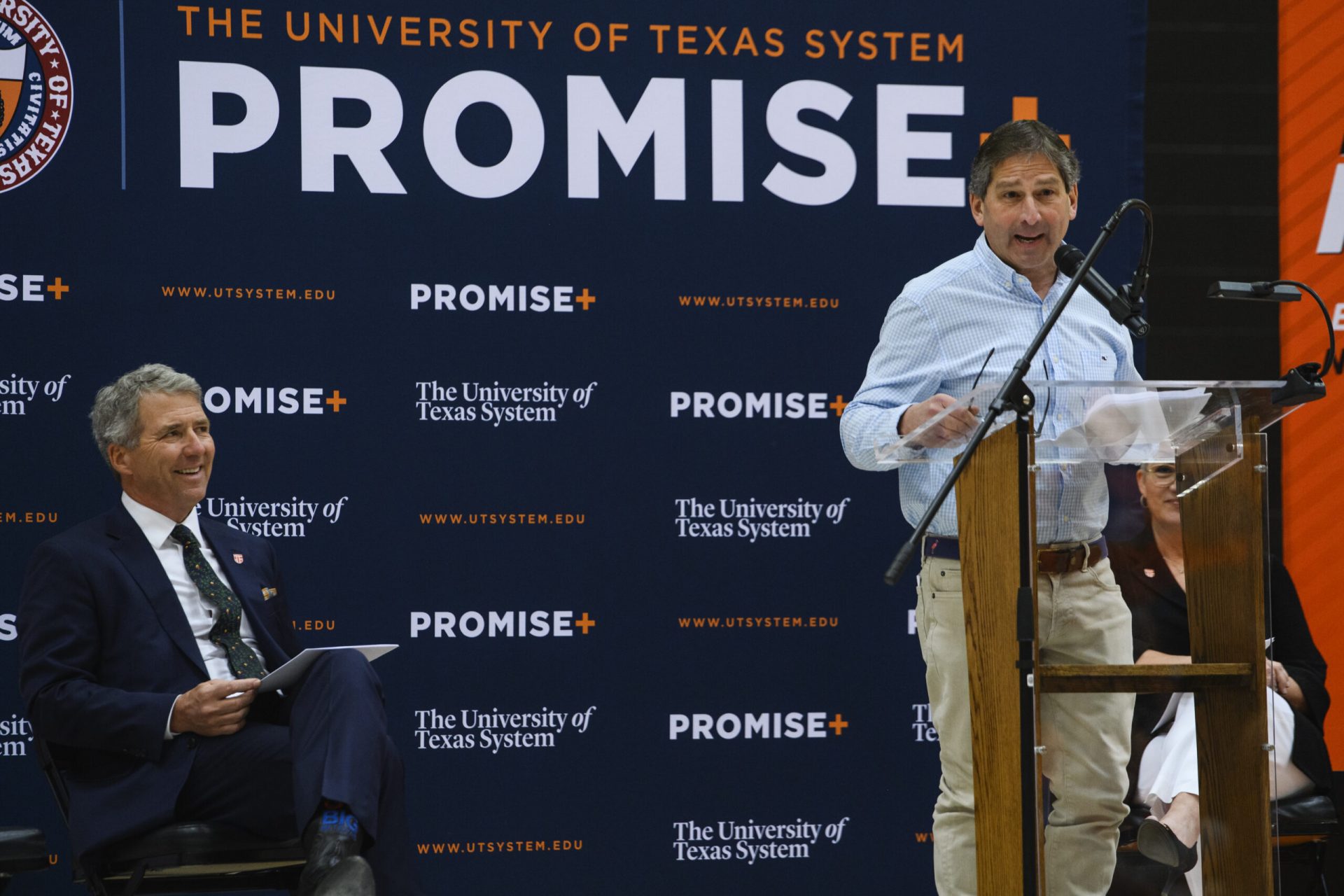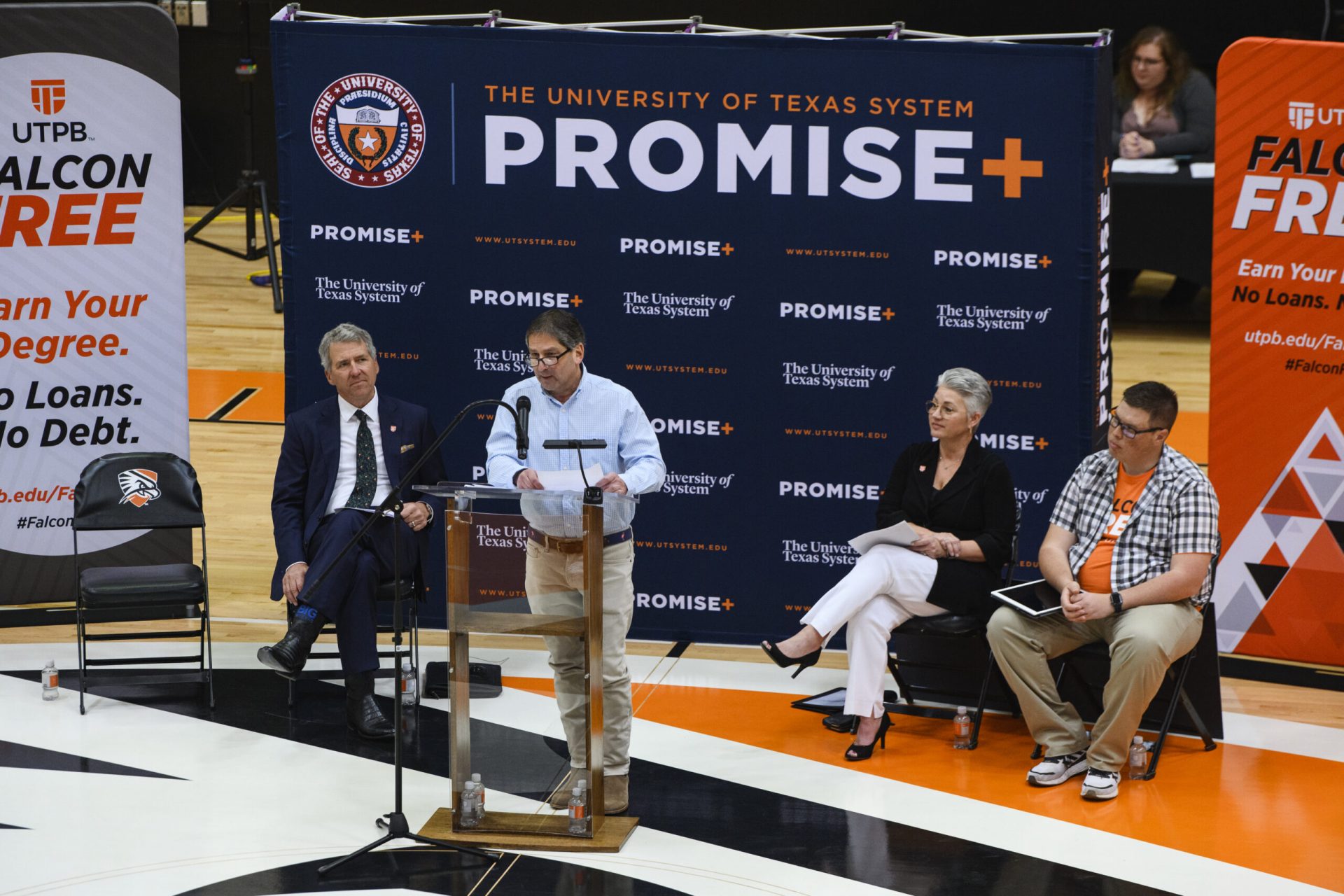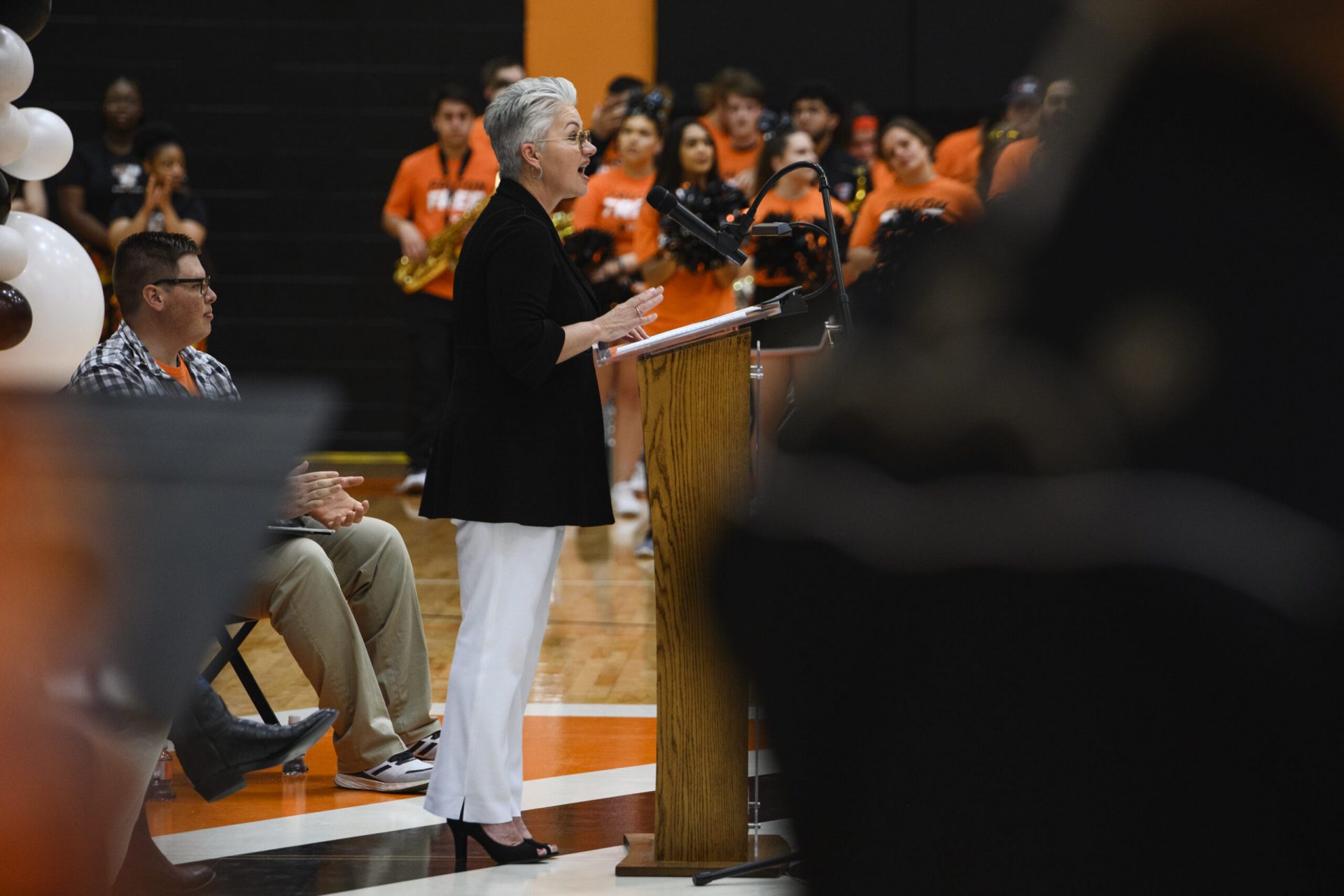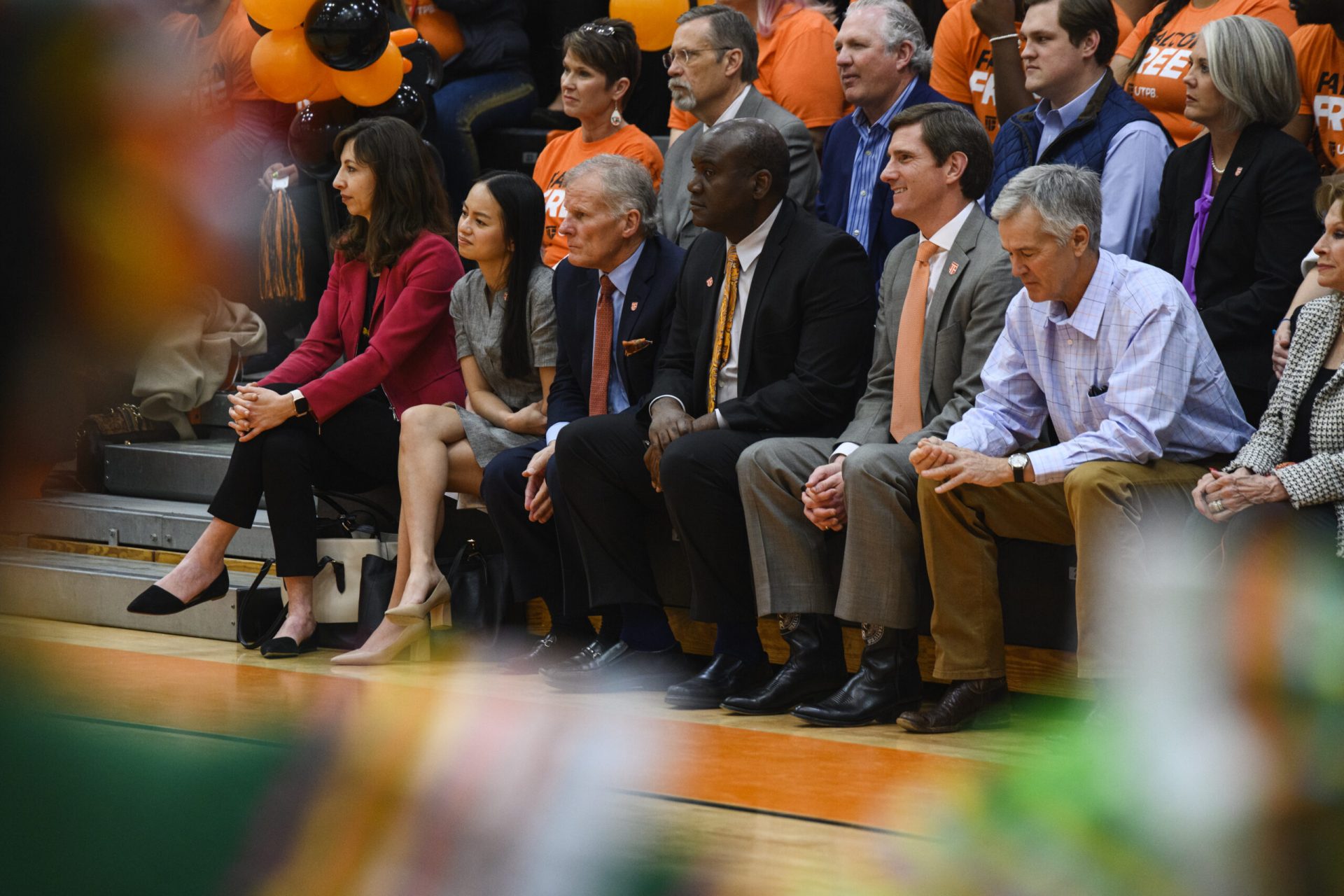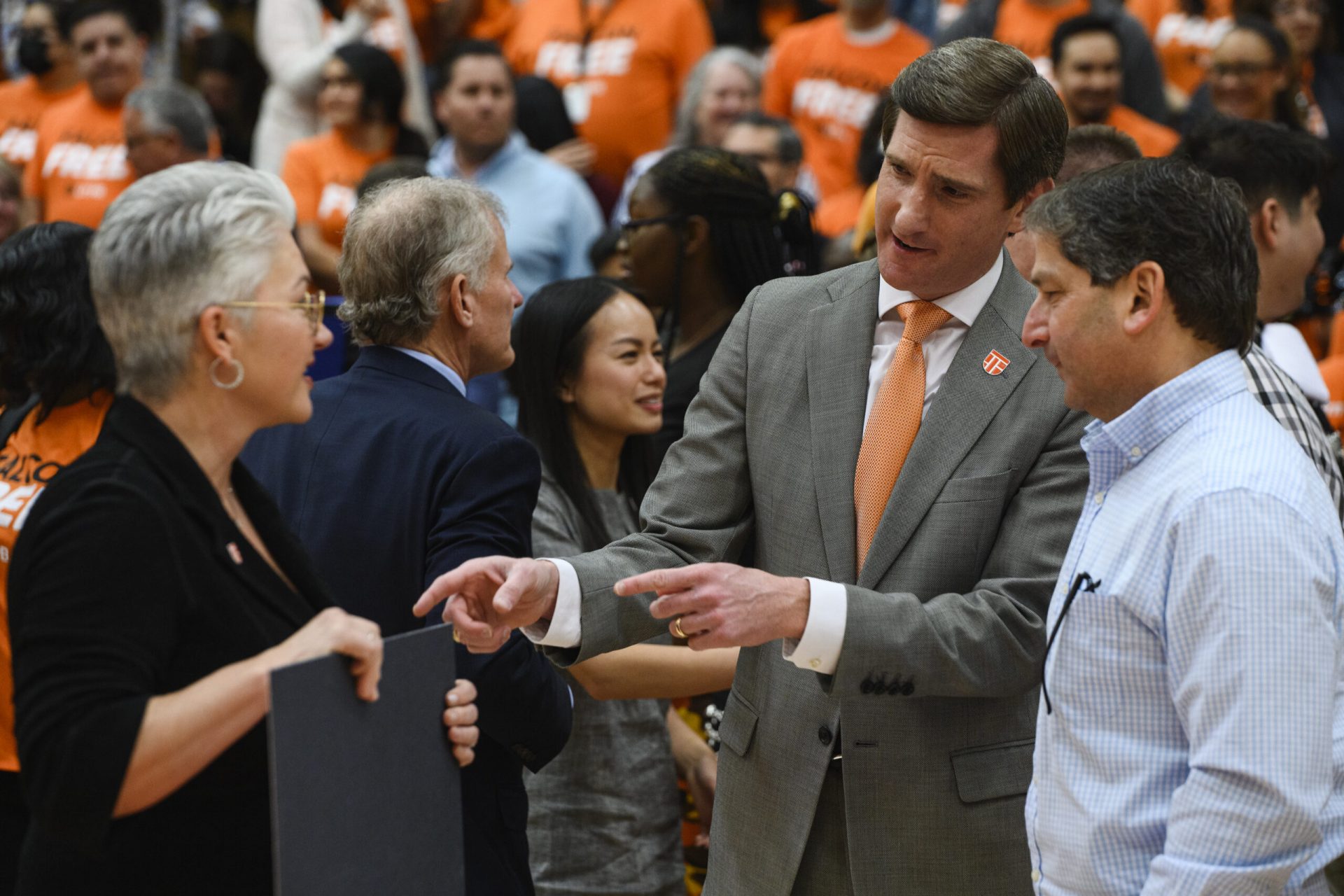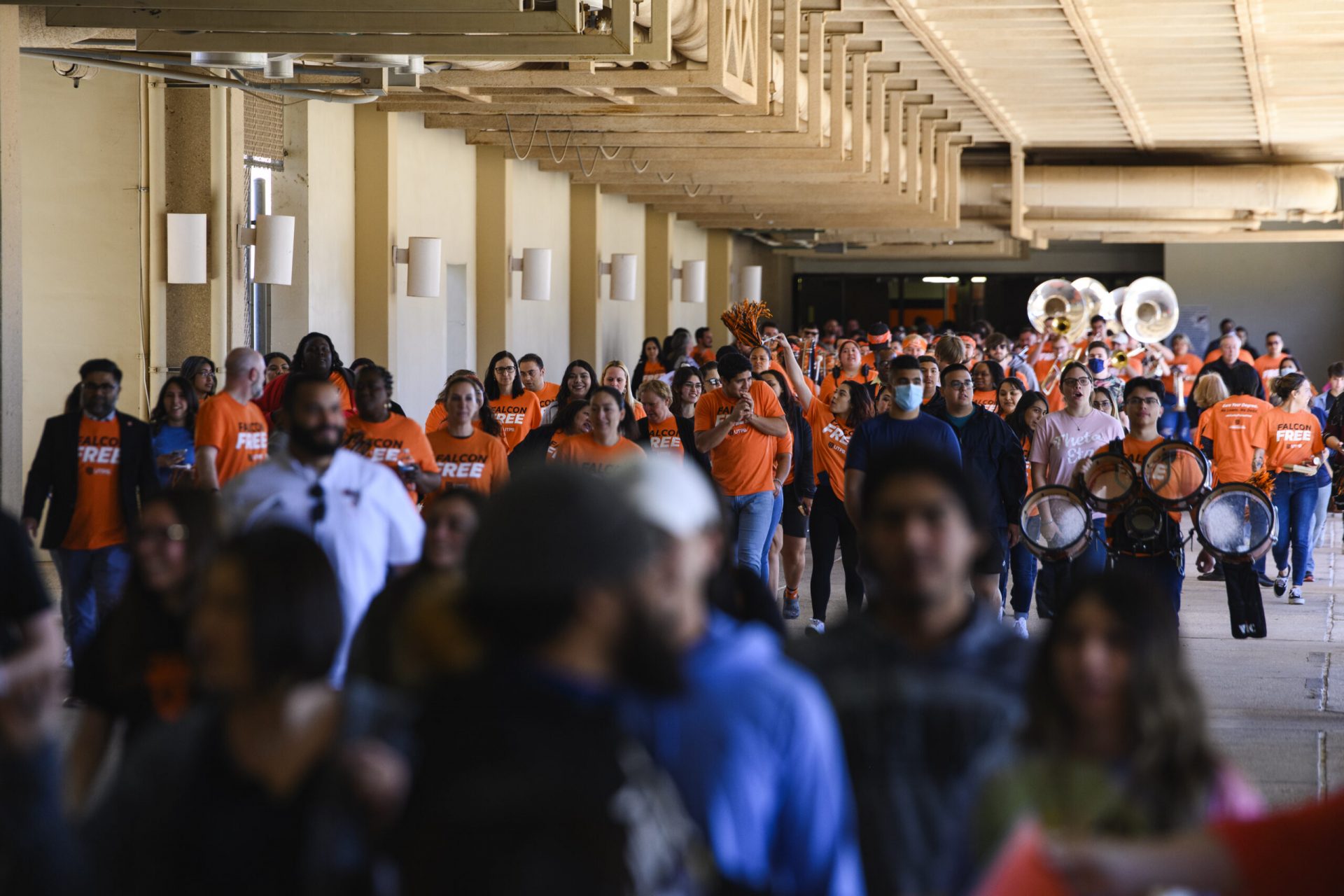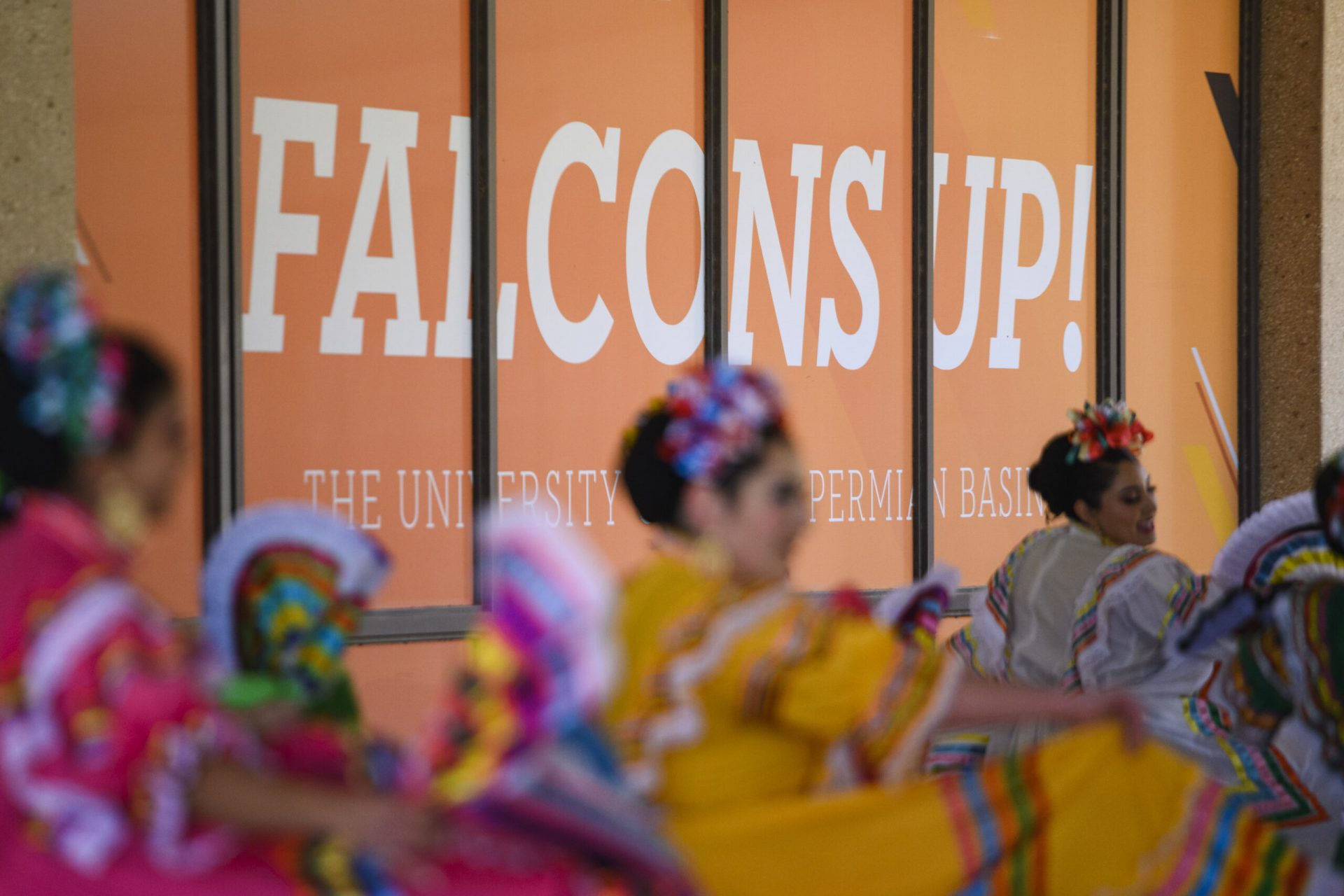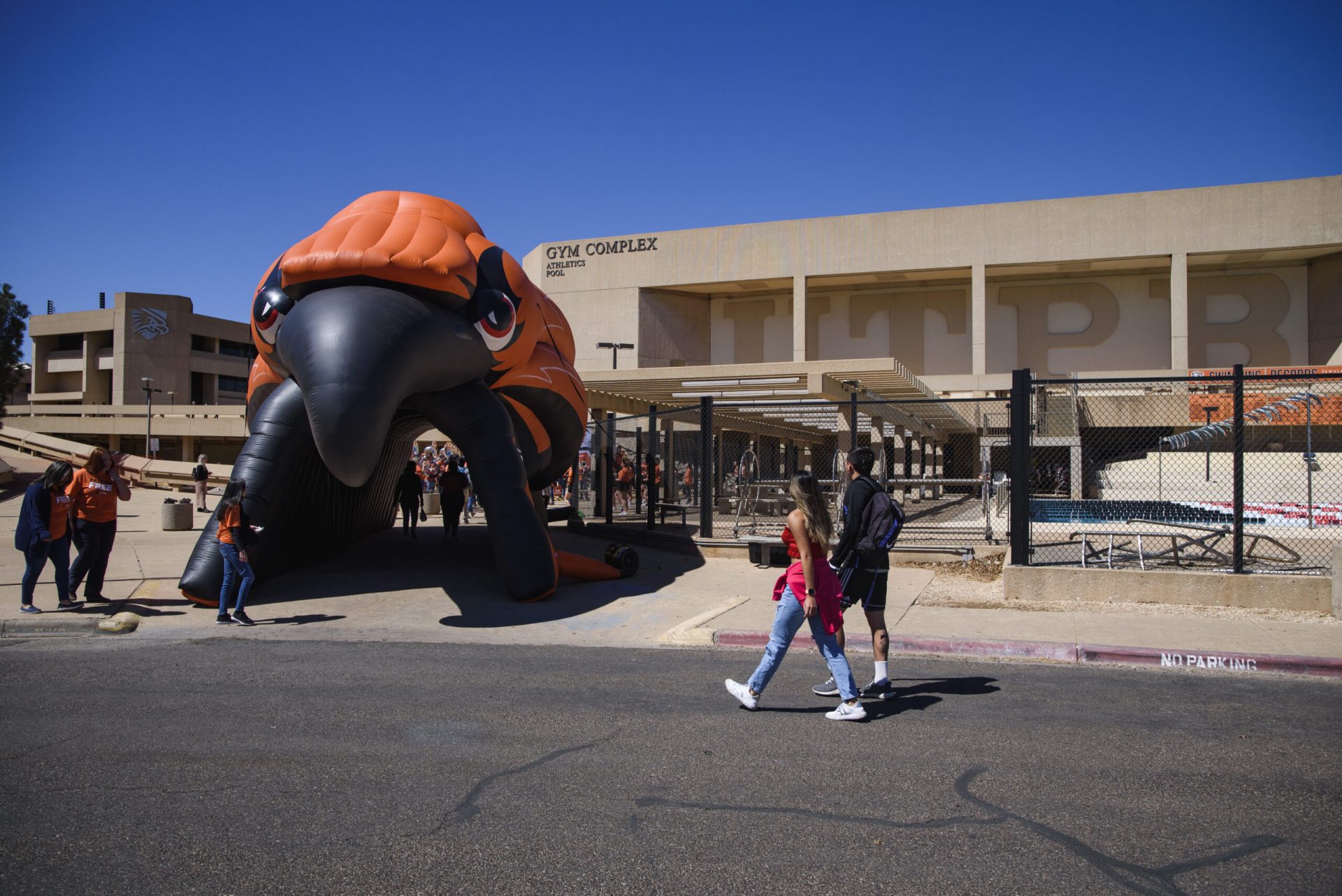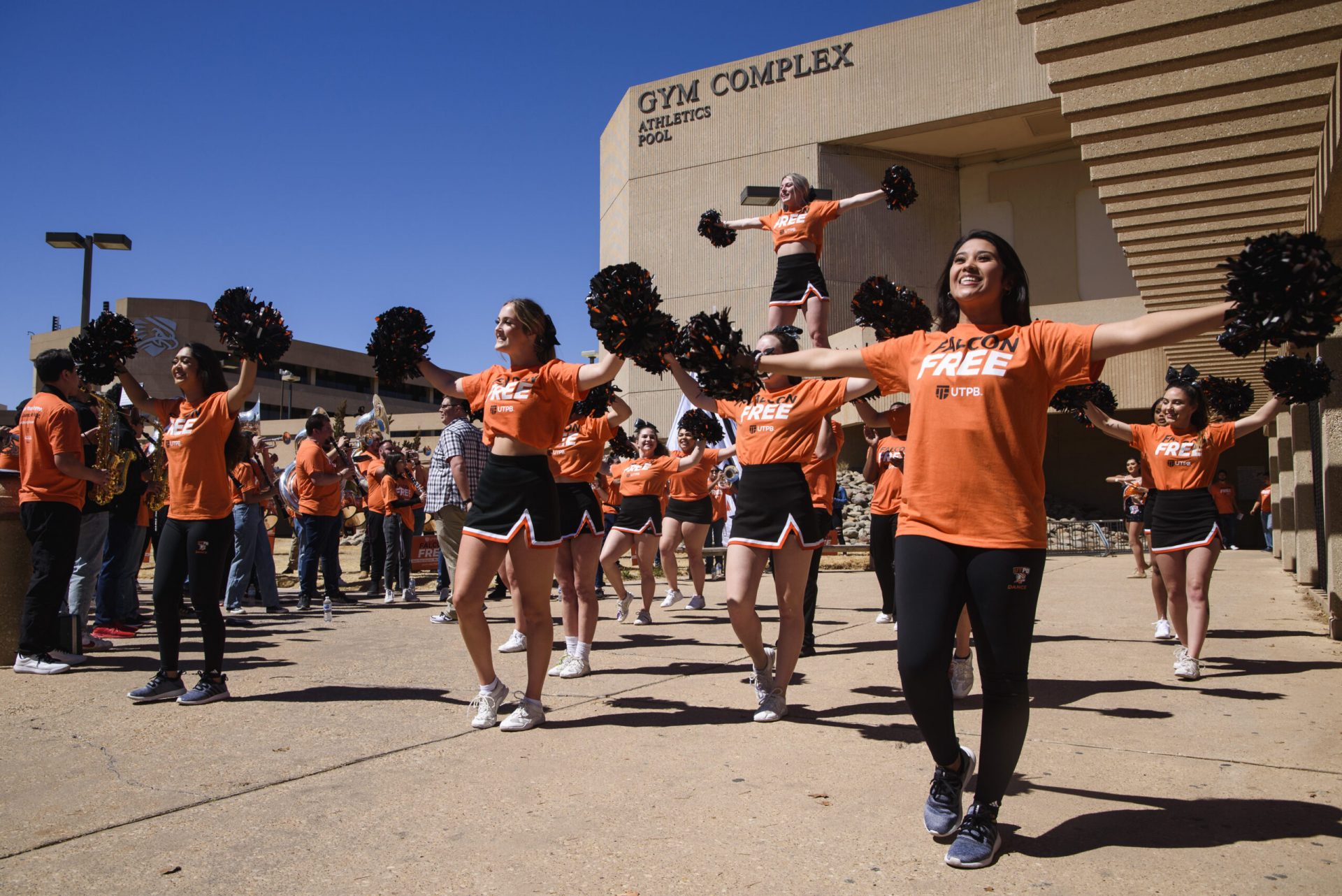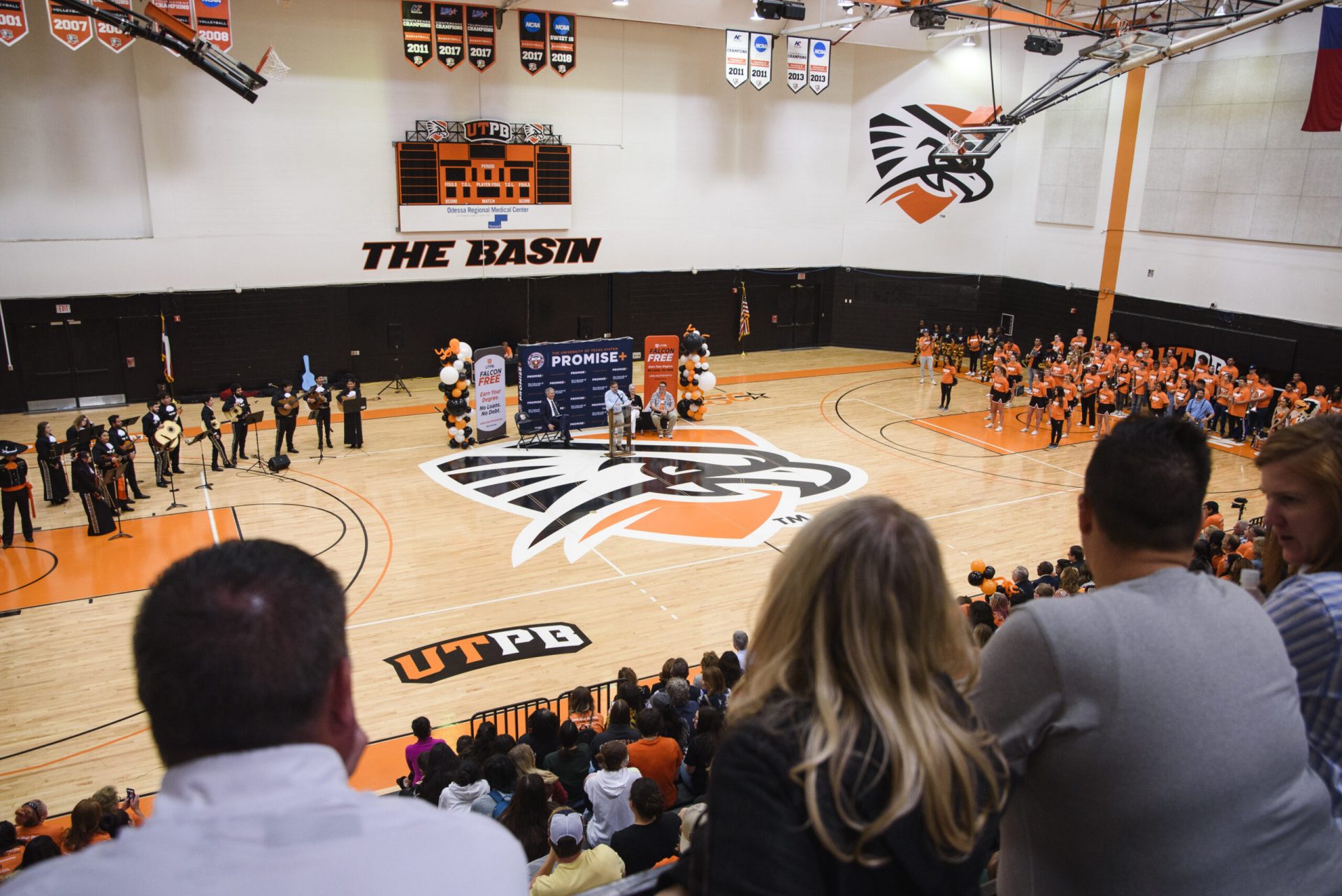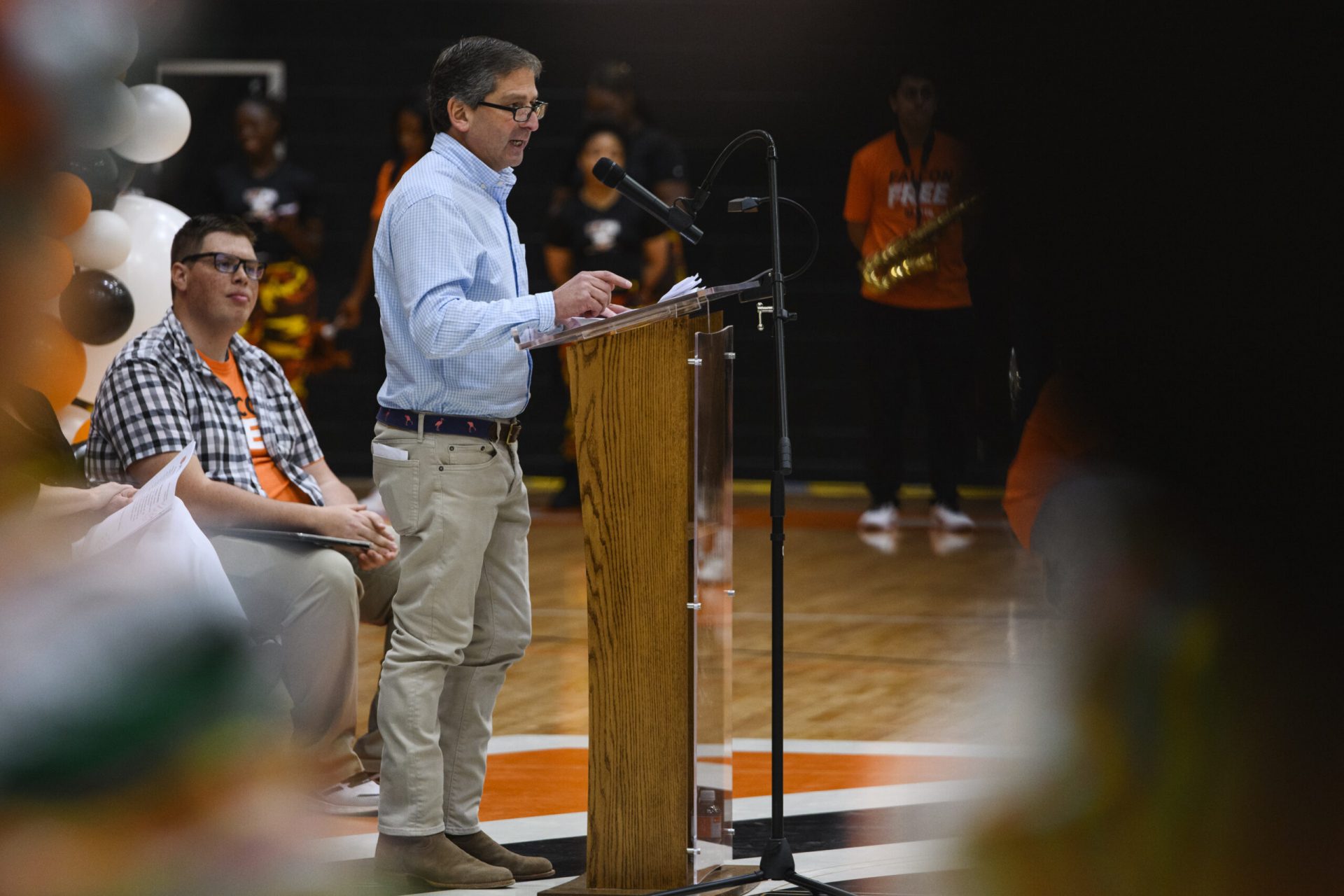Kicked off in March, University of Texas Permian Basin’s Falcon Free program has had 1,157 students accept funding.
Funding has been exhausted for the first year, but President Sandra Woodley and Vice President for Enrollment Management PJ Woolston said they plan to keep it going.
Woolston said the scholarship was offered to more than the 1,157 students, but that was the number that have signed up and accepted the funding.
Falcon Free is part of the University of Texas System’s $300 million endowment to expand tuition assistance programs at all University of Texas institutions also known as “Promise Plus.”
The “Promise Plus” Program provides tuition assistance to eligible students at seven UT institutions including UT Arlington, UT Dallas, UTEP, UTRGV, UT San Antonio and UT Tyler.
Falcon Free, the name UTPB took for its plan, covers the cost of tuition and mandatory fees for students who have limited family resources to pay for college at UTPB, a March 15 Odessa American article detailed.
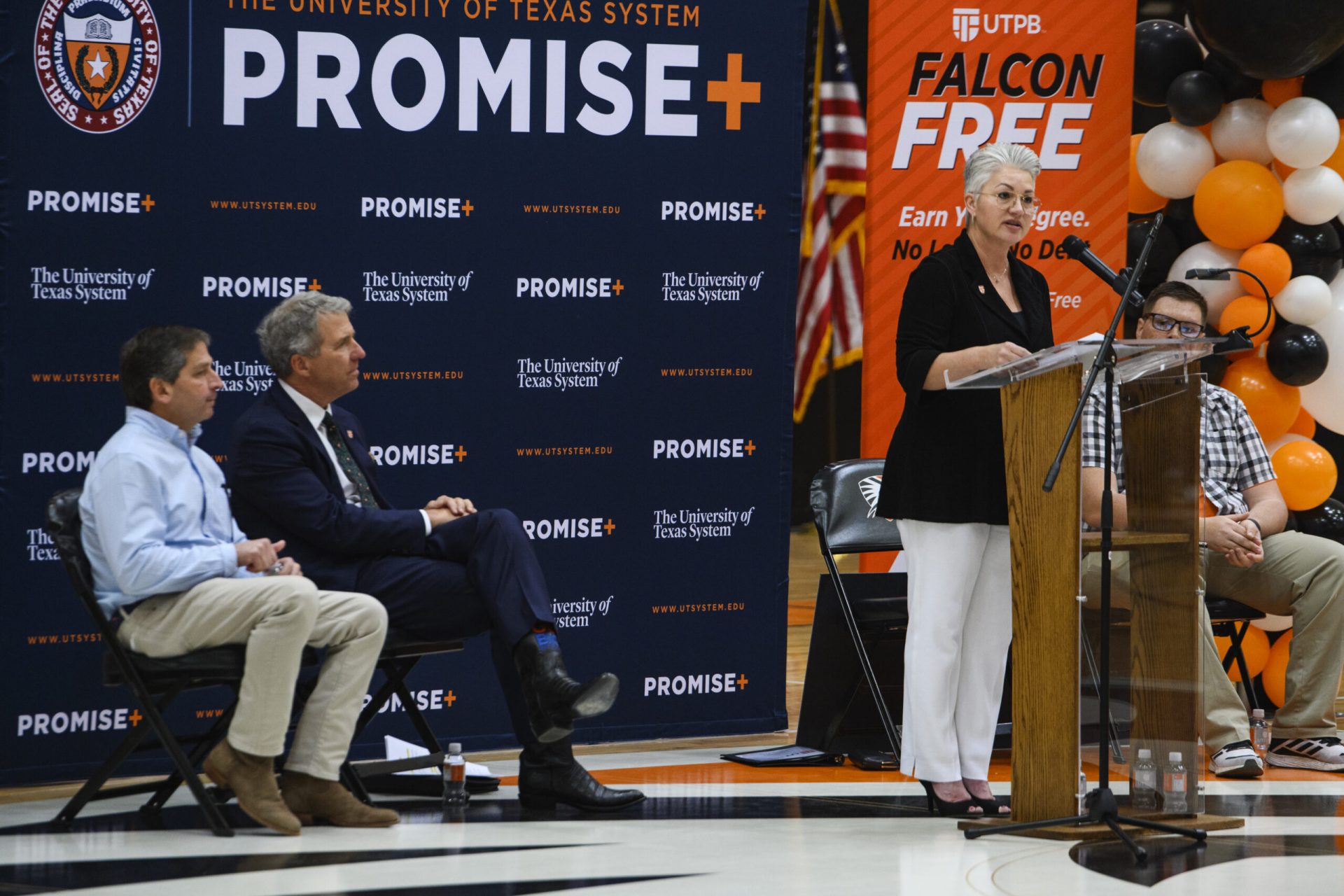
Plans at the different system schools have different qualifications.
Some of the details about Falcon Free include UTPB covering 100 percent of tuition and fees for families making $100,000 or less.
Since it was the first year for Falcon Free, it was hard to know how many people would be interested, but the university is thrilled with the response.
“… We have found a way to help students to go to college here …,” Woodley said.
Woodley said there are other scholarship programs and funding that UTPB has used to help students who wanted Falcon Free, but missed the deadline and that particular funding funding.
“… But there are many other students who we found a way to help them enroll using various other sources …,” Woodley said.
“We’re really happy with the response so far and our enrollment is looking very strong for the fall,” Woodley added.

Woolston said enrollment is trending upward and they are predicting UTPB will be over 5,000 in the fall.
“… Now the student credit hours, we’re seeing a really big uptick as well. So if you’ll remember on Falcon Free students are required to take 12 credit hours. They’re required to be full time. Fifty-five percent (55%) of our students are part time, so we have a large part-time population. To qualify for Falcon Free, you have students who have more money so they have they can work less, take more hours and so we’re really seen in that trend our student credit hours is up around 20% compared to where it was this time,” Woodley said.
“We expect that to soften a little bit by the time we get to the census date, if you will, but it’s very strong in the number of courses that students are signing up for, and also the headcount enrollment. “
Woodley added that the unduplicated headcount of students was about 7,000 students last year. “Fall last year, we served around 5,000, so we have a number of students who stopped and stopped out they don’t all come to the fall. So that didn’t come in the carousel of the eight-week online courses and that then become the spring and not in the fall. But … for us, having 7,000 students in a year is really strong. And we are really looking to significantly increase that over the next five years. Falcon Free is a really important program for us to achieve our goals. It’s not the only thing to which we attribute the increase in enrollment,” Woodley added.

To see the headcount and semester credit hours increase at almost double the rate, Woolston said that tells them that a lot of students who were enrolled part time did that because they just couldn’t afford to be enrolled full time.
“Now that we figured out how to help them solve that problem, and (UT) System has helped us figure that out, we’ve removed that obstacle for them and it’s impacting a lot of students disproportionately to as any other program. We basically said we’ve suspected this was a barrier. Let’s figure out how to tackle it. We came up with a way to tackle it and it is paying off better than we expected,” Woolston said.
Falcon Free is intended to cover students throughout their time at UTPB.
“As long as they meet those need requirements, then we’ll cover their gap to tuition,” Woolston said.
They’ll have to fill out an application every year, Director of Strategic Communications Alexa Dunson said. “… A good way to … clarify is that as long as they qualify, they will continue to benefit. But we certify or confirm that they qualify on a yearly basis,” Woolston said.
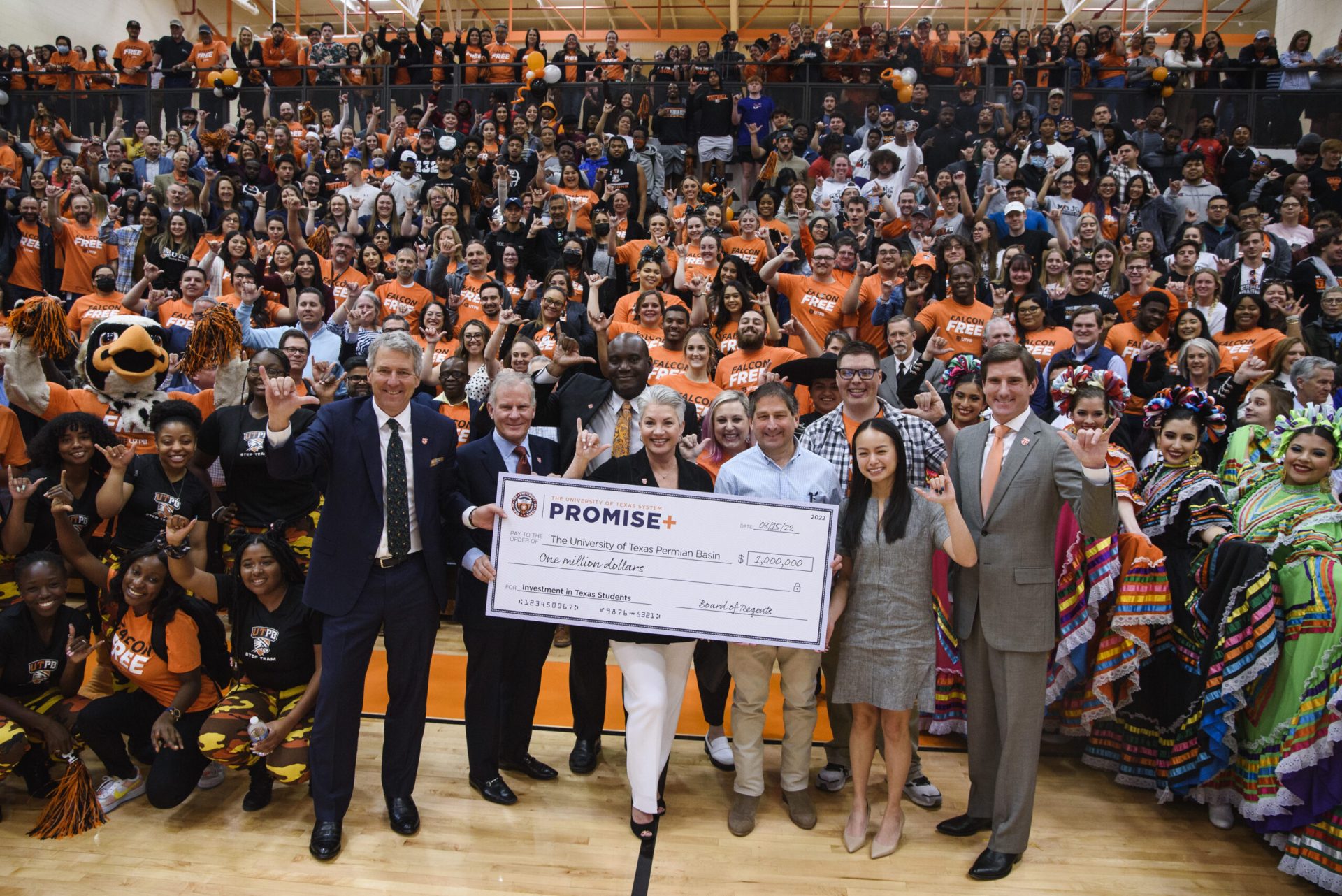
Woodley said the Falcon Free money was limited.
“We have $1 million. Now we’re hoping and asking for the UT System to provide additional funding next year because we think the interest in this program will grow. And plus it was a little bit late in the year when we got it going last year, so some students didn’t know about it. We will have to fit the program within the available funding and we’re constantly looking for ways to increase our other scholarship dollars so that we don’t miss a beat in serving the students who are interested in going to school here. Not all of our students will be funded that can be funded with Falcon Free because it is a limited program; generous, but limited,” she added.
Woodley said the UT System has been very receptive to funding Falcon Promise.
“I think they’re very happy with the program and the benefits that the universities are seeing from this extra affordability that wasn’t there before. I think it is impactful. The impact, I think, is really strong in the Permian Basin where so many of our high school students and others in our community can’t afford the time or the money to go to university,” Woodley said.

She added that they hope it will be a game changer in the sense that students … who otherwise wouldn’t even consider going into college might now consider it. “It’s an option that they didn’t see in their future.”
Woolston said they’re already hearing feedback from students about being able to take advantage of higher education.
“We’re now trying to up our game and this is a dialogue with UT System. They’re they’re talking to us about this because everybody is interested in bridging this gap,” Woolston said. “This isn’t just us saying we need more money.”
Woodley noted that the UT System started the program at UT Austin several years ago and replicated it.
Woodley said they think about 73 percent of the population here falls within the $100,000 or less income guideline, which is enough to make a “big difference.”
Woodley said it’s hard to tell what part of their enrollment increase can be attributed completely to Falcon Free, “but there’s no doubt that it increased our momentum.”
Woolston said Falcon Free is not just another program for UTPB.
“We really built it to work in tandem with all of the other important community and regional work that we’re doing. We are a regional institution and we are deeply invested in the success of this region. It’s probably the primary point of our strategic plan. Everything stems around student success, our commitment to the area really helping the people here succeed. And Falcon Free is one very significant part of a lot of things that we’re doing that have increased applications significantly, which means number of admitted students is significantly increasing. How much will enrollment increase? We’ll know here in a few weeks, but every indication is that that also will increase significantly,” Woolston said.

Officials said UTPB has awarded $47 million in financial aid annually.
Woodley said they will have their first inaugural scholarship ball Oct. 6 at the Odessa Marriott Hotel & Conference Center to bring in more scholarship dollars to help these programs.
“UTPB is filling an extraordinarily unique need in Texas. If you think about the UT System, the whole point behind that design was let’s put a number of institutions throughout the state so that people everywhere can have access to higher education, bachelor’s degrees, graduate degrees. That’s why we have a number in the mega-region — Houston, Dallas, San Antonio, Austin. That’s why you’ve got them in population centers like El Paso and Brownsville and elsewhere. You’ve got lots of options for higher education in even Lubbock, Abilene, San Angelo, some of the other important cities in this area. But you have this huge area in the Permian Basin. The UT system recognizes that you’ve got to put an institution here or a whole bunch of people are not going to have access to higher education. And that’s a really unique need that UTPB fills that nobody else can fill,” Woolston said.
“That’s not to denigrate in any way Odessa College, Midland College, Howard College. I mean really important work that they’re doing. But this is a four- year institution with graduate programs. That’s a definite need … that lifts the economy of the entire area. What we have is we have students coming from all over the Permian Basin from 120 mile radius, as well as beyond. But those students, a lot of them, are going to stay here because they built a life and a network here …,” Woolston added.

